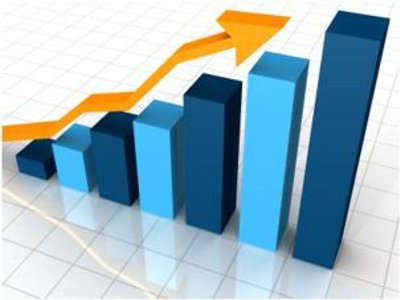Enterprise SAP IT organizations pose a problem as they are focused on SAP and IT. They lose sight of their purpose, which is to promote the broader objectives of the enterprise. An SAP-centered IT organization’s whole existence is about ensuring business benefit, focusing on enterprise goals, strategies, and objectives.
Somewhere between the SAP sales cycle and the SAP go-live, the concept of business benefit gets lost and is never found again. By the time you go live with the SAP application, the entire IT organization becomes narrowly focused on the care and feeding of the new system. Everything is all about the “new” ERP application, and the business is left holding an empty bag. The money is gone, but the business now has to struggle through getting their operations stabilized just to continue doing business.
The entire IT organization’s existence must focus on enabling business.
Today’s enterprises will no longer pay the premium prices for SAP or IT organizations that exist in a silo. To continue with this old way of doing SAP or IT support will turn those internal services into expensive commodities to be outsourced to the lowest cost provider(s). If you want to do more than survive, you must build a converged SAP or IT organization. Without IT convergence, you can expect budget cuts and more outsourcing pressures.
Research Shows a Business Focus Produces SAP Results Needed for IT Convergence
Successful SAP projects require the management and measurement of expected benefits and the purpose for the project throughout the entire SAP life-cycle (Holland and Light, pg. 1630-1636, 1999). To gain business benefits from an ERP package, you need a serious discussion of goals, direction, objectives, and what the business software can do in those areas. After that, you also need coordination of key resources from both business and IT to create business to IT alignment (Willcocks and Sykes, pg. 33-38, 2000). This business to IT alignment produces some great results but is just the beginning.
[F]irms that invested more heavily in business process redesign and devoted more of their IT resources to increasing customer value (e.g. quality, timeliness, convenience) had greater productivity and business performance (Hitt, Wu, and Zhou, pg. 3, 2004 citing Brynolfsson and Hitt)… [A 1999 study on] the impact of ERP systems on self-reported company performance based on a survey of 101 US implementers of SAP R/3 packages [showed]… companies reported substantial performance improvement in several areas as a result of their ERP implementation, including their ability to provide information to customers, cycle times, and on-time completion rates (Hitt, Wu, and Zhou, pg. 5-6, 2004).
In the 2004 study just cited, they also referenced compiled research by Gattiker and Goodhue (2000), which identified four broad categories of ERP benefits: (1) better information flows, standardization, integration, communication and coordination; (2) centralization of administration activities such as AP and payroll (i.e. “shared services”); (3) reduced IS maintenance costs and improved ability to deploy new IS functionality; (4) a move to “best business practices” around business processes.
Some of the additional and very interesting findings (Hitt, Wu, and Zhou, pg. 18, 2004) include the following:
- Greater sales employee performance
- Higher profit margins
- Better return on assets, including greater asset utilization
- Higher inventory turns
- Greater receivables management, including better cash-to-cash cycles
- More revenue generated per unit of input
This is impressive, but notice these benefits are nearly all operational business performance results. They certainly appeal to the CFO and improve market valuation, which makes them meaningful. However, as operational benefits they are nearly all focused on lagging indicators of business success. Shareholders approve of these results with the valuations of companies who implement ERP systems being “worth approximately 13% more than their non-adopting counterparts, controlling for assets, time and industry” (Hitt, Wu, and Zhou, pg. 20, 2004). So implementing SAP has a positive impact on stock values. While the focus on operational results generally produces good results, a focus on business and marketplace results can produce disruptive results.
Today’s SAP Enterprise Can Realize Even More Through SAP IT Convergence
All of these benefits and gains from roughly a decade ago are not enough today. While the study from Hitt, Wu, and Zhou (as well as the others reviewed here) showed tremendous benefits for SAP they were based on studies at least 10 years old.
In the last decade the entire global landscape has dramatically changed –, the Internet and the pace of technology change has disrupted every value proposition model relied upon by business. No area of the enterprise is off limits–, business is in the midst of a global and dynamic transformation of operations, innovation, and customer focus. To thrive in our modern business era we will all have to move past the IT to business alignment model and push into IT convergence.
Your SAP Enterprise Can No Longer Avoid Full Business to IT Integration (i.e. “Convergence”)
The business benefit focus has been difficult for SAP or IT leaders trying to quantify returns from their investments. Even though SAP has been at the forefront of addressing this message, it is slow to catch on. Over a year ago, I highlighted SAP’s “value delivery” and value focus to implementing their software:
Studies have shown that there is a critical disconnect between projected benefits in business cases for IT investments and actual value achieved, because so many firms focus on going live with a project rather than its value delivery. An SAP / ASUG best-practice survey on the ability to capture the projected benefits of an IT project found that 73% of companies do not quantitatively measure value post-implementation (SAP Executive Insight Series, pg. 7, 2009)… Critical business benefits for an SAP project require taking a hard look at the enterprise and its goals or direction… (see A New SAP Implementation Methodology and Implementation Steps).
While all of this is critical for realizing SAP ROI from your investment, there is still more to do. With this groundwork focusing on the need for business benefit, or measurable ROI, we can take the next step and start to explore full IT convergence around your SAP endeavors.
In the next article, we will look at some methods to create SAP IT convergence.
=========================
Gattiker, T., and Goodhue, D. Understanding the plant level costs and benefits of ERP: Will the ugly ducking always turn into a swan? In: R. Sprague, Jr. (Ed.), Proceedings of the 33rd Annual Hawaii International Conference on System Sciences ( CD-ROM), Los Alamitos, CA: IEEE Computer Society Press, 2000.
Hitt, L., Wu, D.J., and Zhou, X. ERP Investment: Business Impact and Productivity Measures. Wharton School at U of P (2004).
Holland, C. and Light, B. Critical Success Factors Model for ERP Implementation. IEEE Software. May / June (1999).
Willcocks, L. P. and Sykes, R. The Role of the CIO and IT Function in ERP. Communications of the ACM, Vol. 43, Iss. 4 (2000).






